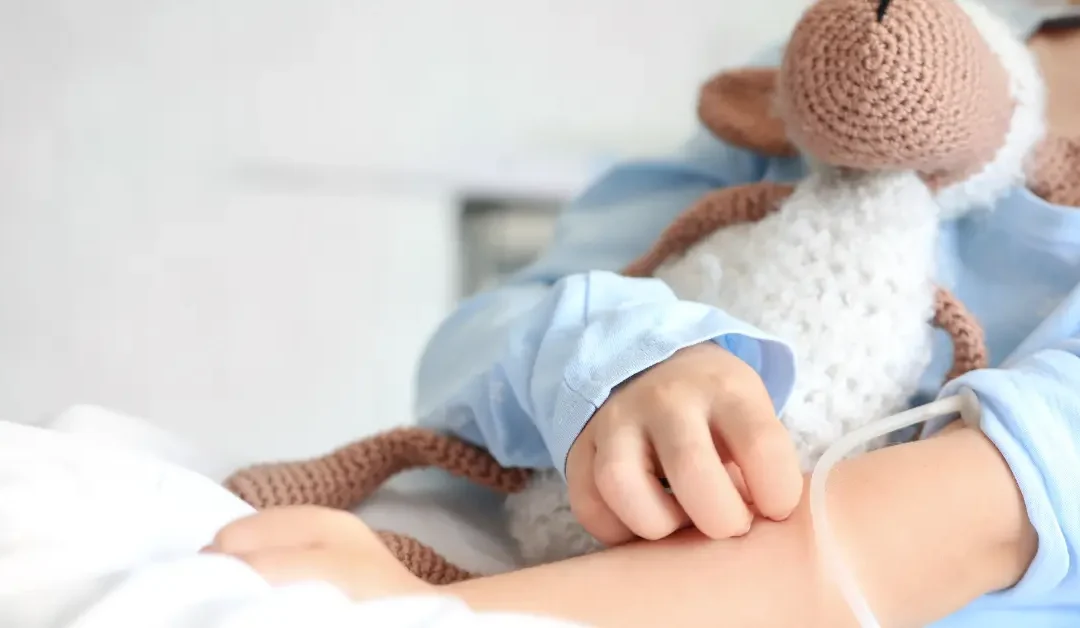The CHI hip surgery review has uncovered serious issues in paediatric care, prompting an apology from CHI and a commitment to reform.

Vaginal mesh implants have been widely used to treat conditions such as pelvic organ prolapse and stress urinary incontinence. However, many women have suffered severe complications, including chronic pain, infection, organ perforation, and mesh erosion, often requiring additional corrective surgeries. If you have experienced complications due to a vaginal mesh implant, you may be entitled to seek compensation. Coleman Legal LLP has a team of experienced solicitors representing individuals in Ireland affected by these implants. We are committed to providing expert legal support and guiding you through the claims process with care and professionalism.
For a confidential consultation, please call us at 1800-844-104 for free or email [email protected]. You can also visit us at our 84 Talbot Street, Dublin 1, Ireland office.
The majority of women are given vaginal mesh implants to treat prolapse or incontinence. A growing number of women have had serious complications as a result of their vaginal mesh implants. If you have been affected by vaginal mesh implant complications in Ireland, you can discuss your situation in strict confidence with a member of our medical negligence and defective products team.
Currently, in the United Kingdom, more than 800 women are bringing Action against the NHS and the manufacturers of their vaginal mesh implants after suffering severe complications.
Thousands of claims have been lodged against Ethicon Inc., one of the manufacturers of this device, and its parent company, Johnson & Johnson. These claims have alleged that the device was defective and negligently designed in that the mesh was made of polypropylene, which is not safe for use in the human body.
The U.S. Food and Drug Administration (FDA) in the late 1990s and early 2000s approved transvaginal mesh implants as a treatment for pelvic organ prolapse (POP) and stress urinary incontinence (SUI). Early on, these products were embraced by doctors as a more straightforward, easier way to create a long-term solution for women suffering from these embarrassing and often debilitating conditions. With nearly 500,000 surgeries performed each year, many medical device companies saw a potentially lucrative market to enter. Since the FDA approved the first vaginal mesh product, dozens of vaginal mesh products have entered the market.
An FDA decision to make transvaginal mesh a Class II product paved the way for many companies to produce multiple mesh brands. This classification puts a lighter burden on manufacturers to gain approval for their new products. Under Class II guidelines and the FDA 510k program, manufacturers are only required to show that the device they are producing is substantially similar to a product already approved and on the market. This made it very easy for manufacturers to quickly and easily bring new vaginal mesh products to market. Although there are a large number of companies manufacturing vaginal mesh, there are five companies considered dominant in the market: Johnson & Johnson, Bard Medical, American Medical Solutions, Boston Scientific, and Coloplast. These companies produce multiple brands through subsidiaries, making billions of dollars in profit annually.
J&J’s Ethicon has been the slowest in offering settlements to all mesh manufacturers. The company also faces the highest number of federal lawsuits in the US. In January 2015, the company settled four lawsuits for an undisclosed amount. A federal jury in West Virginia awarded $3.27 million to Jo Husky in September 2014. Huskey claimed her Ethicon Gynecare TVT mesh caused permanent injuries, and the company failed to warn her. In 2013, a New Jersey jury returned an $11 million verdict against Ethicon for injuries caused by its Gynecare Prolift. Another woman also won $1.2 million in Texas state court against J&J.
Drugmaker Johnson & Johnson was eager to jump into the emerging mesh market and created a new mesh product line through its subsidiary, Ethicon Inc. Ethicon was charged with developing “easy-to-use” surgical mesh kits. These kits provided doctors with pre-cut mesh and the tools needed for the implant procedure. Surgeons embraced the convenient new kits. They quickly became the preferred treatment for prolapse and incontinence. Ethicon’s Gynecare brands were believed to be superior to traditional surgery, but doctors had many more complications than expected. The surgical mesh was challenging to implant, and complaints of severe post-surgery complications were common. In June 2012, amid mounting legal pressure and growing concern from the FDA, Ethicon announced that it would no longer manufacture and distribute vaginal mesh products. However, Ethicon and J&J have refused to call the decision a recall. Because of the injuries caused by these products, over 25,400 lawsuits have been filed against Ethicon and J&J in the United States alone.
J&J started selling the Gynecare Prolift Kit for prolapse treatment in 2005 without marketing approval from the FDA. The FDA scolded J&J for breaking the rules but approved the Prolift anyway in 2008.
The Gynecare TVT Secure was the first mini bladder sling used in the United States. Instead of using needles, the U-shaped TVT Secur has built-in blades for attaching the mesh. However, the TVT Secur is more likely to loosen after surgery.
J&J tried to perfect the mini bladder sling with the Gynecare Prosima Kit. It uses slits cut with scissors to implant the mesh instead of needles. A tiny balloon is placed on the anchored mesh and inflated to support organs after surgery. The balloon is removed 24 hours after the operation. Because of the way it is attached, this mesh is applicable only if incontinence is caused by organs dropping to the back of the vagina; it is likely to fail if organs prolapse toward the front.
In another effort to avoid patient complaints of vaginal scarring and perforation J&J created the Gynecare Prolift +M to treat prolapse. It was the first surgical mesh in the United States to use plastic fibers that the body could partially absorb. This mesh isn’t as dense as the Prolift, and it has larger holes that are supposed to help patients heal after surgery. The mesh also resists folding and wrinkling. Despite J&J’s efforts, the Prolift + M eroded and shrank like many of its other mesh brands.
Like Johnson & Johnson, Bard Medical’s brands were approved under the 510(k) process. Bard even outsourced the clinical testing for its Alyte Y-Mesh device, relying on data from a 2010 European survey of 17 surgeons to get the brand approved by the FDA. Bard makes transvaginal mesh kits for both prolapse and incontinence.
Almost 11,000 patients who received Bard transvaginal mesh have already filed lawsuits against the company for injuries related to the products. These women suffered from erosion, organ perforation, nerve damage, migrated mesh and infection caused by Bard’s brands.
| Prolapse Repair | Bladder Sling |
|---|---|
| Alyte Y-Mesh Graft | Ajust Adjustable Single-Incision Sling |
| Avaulta Solo Anterior and Posterior | Align Urethral Support System |
| Avaulta Plus Anterior and Posterior | Pelvilace BioUretral Support System |
|
Pelvicol Acellular Collagen Matrix (Pelvicol Pelvisoft Tissue) |
Pelvilace Trans-Obturator BioUrethral Support System |
| Pelvisoft BioMesh | Uretex Self-Anchoring Urethral Support System |
| Pelvitex | Uretex Trans-Obturator Urethral Support System |
| Faslata Allograft |
American Medical Systems made mesh for both stress urinary incontinence and pelvic organ prolapse throughout the 2000s. In 2011, the company was purchased by Endo Pharmaceuticals. Some patients are suing both Endo and American Medical Systems to recover medical costs from injuries sustained from their transvaginal mesh products. Removal and revision surgeries for American Medical Systems transvaginal mesh brands happen frequently. Endo argued it could be sued for the actions of its subsidiary. However, by 2015, it had already paid close to $900 million to settle AMS lawsuits.
| American Medical Systems Transvaginal Mesh Products | |
|---|---|
| Prolapse Repair | Bladder Sling |
| Apogee | MiniArc Precise Sling |
| Perigee | MiniArc Single-Incision Sling |
| Elevate Anterior and Posterior Repair | Monarc Subfascial Hammock |
| InteXen | In-Fast Ultra Transvaginal Sling |
| IntePro | BioArc SP Sling |
| The Straight-In | BioArc Trans Obturator Subfascial Hammock |
| IntePro | SPARC Sling |
| Elevate with InteXen LP | InVance Male Sling |
| InteMesh | |
| AdVance | |
| Monarc Sling | |
Boston Scientific is facing over 16,400 lawsuits over its mesh and incontinence products. Like the other manufacturers, Boston Scientific’s brands injured many patients when the faulty mesh eroded and punctured organs. The company has stated it still believes transvaginal mesh is an important treatment for incontinence and pelvic organ prolapse. Boston Scientific’s revenue was $7.6 billion in 2011, and transvaginal mesh sales made up less than 5 percent of the company’s revenue.
| Boston Scientific Transvaginal Mesh Products | |
|---|---|
| Prolapse Repair | Bladder Sling |
| Pinnacle Pelvic Floor Repair Kit | Advantage Transvaginal Mid-Urethral Sling System |
| Uphold Vaginal Support System | Prefyx PPS Sling |
| Polyform Synthetic Mesh | Obtryx Sling |
| Uphold | Lynx Sling |
| Arise | Advantage Mesh |
| Advantage Fit | |
| Lynx Suprapubic Mid-Urethral Sling | |
| Obtryx Transobturator Mid-Urethral Sling | |
Coloplast markets mesh products for the repair of prolapse and incontinence. As of June 2015, the company is still facing almost 2,000 lawsuits, which have been consolidated in multidistrict litigation (MDL) in the U.S. District Court for the Southern District of West Virginia. The patients say Coloplast’s mesh products caused serious injury. In 2014, the Danish company offered $16 million to settle about 400 suits. The FDA ordered dozens of manufacturers to conduct studies on their mesh products, including Johnson & Johnson/Ethicon, Bard Medical, Endo Pharmaceuticals/ American Medical Systems, Boston Scientific and Coloplast. While each company makes its own version of transvaginal mesh many of the products are similar in both their design and the material used to construct the mesh. Most transvaginal mesh brands are prone to erosion and organ perforation. Because the complaints the FDA received on mesh complications are not tied to any specific transvaginal mesh manufacturer, all companies that produce transvaginal mesh brands are potentially liable for compensating patients for injuries caused by their products.
| Manufacturer | Products |
|---|---|
| Coloplast | Exair, Supris Suprapublic Sling, T-Sling, Aris Transobturator Sling, Restorelle, Minitape, Omnisure, Novasilk sling |
| Organogenesis | Fortaflex, FortaPerm |
| Pegasus Biologics | Orthadapt, Orthadapt, Bioimplant |
| Prosurg | Easy Lift, Minisling, Zippere |
| RTI Biologics | Tutopatch Tutomesh |
| Tyco Healthcare | IVS Tunneller |
| Covidien | Duo, IVS Tunneler, Parietene Mesh, Surgipro Mesh |
| Mentor | ObTape |
| Sofradim | Pelvetex, Uretex, Uretex Sling, UretexTO, Uretex TO Avaulta BioSynthetic System |
| PM Devices | PeriPatch |
| Serica Technologies Inc. | SeriScaffold |
| Surgicraft | Surgicraft Surgical Mesh |
Source: drugwatch.com
It is advisable for you to speak to an experienced team of Medical Negligence Solicitors as soon as possible if you believe that you were not provided with an adequate or appropriate level of medical care, which resulted in you sustaining an injury or illness.
After the consultation with your medical negligence solicitor, he/she will request access to your medical records and engage an independent medical expert to assess your records. The purpose of engaging an independent expert is to establish whether there was any negligence on the part of the medical professional.
Where the independent medical expert is of the professional opinion that medical negligence did occur, upon your instructions, your solicitor will commence the process of issuing legal proceedings in Court against the medical professional and/or hospital. Call us at 1800 844 104 (Free Phone) or email [email protected] to speak with a member of our Medical Negligence team.
The legal time limit to make a medical negligence claim is two years from the date of injury or date of knowledge that the injury or illness resulted from medical negligence. For children/minors, the time limit expires two years after their 18th birthday. You may contact a solicitor to discuss your case and advise you of the statute of limitations applicable to your case.

Complications from vaginal mesh implants can have long-term physical and psychological effects on both the patient and their family. You may be entitled to pursue a claim if you have suffered due to medical negligence or errors in your procedure. Our experienced medical negligence solicitors have successfully assisted many clients in seeking compensation for vaginal mesh implant errors. We are committed to prioritising our client’s needs and providing professional legal guidance every step of the way.
Solicitors
84 Talbot Street, Dublin 1
D01 YX60
DX 112002
Free Phone: 1800-844-104
Fax: (01) 5312727
Email: [email protected]
Web: www.colemanlegalpartners.ie
Online Enquiry Form: Apply

Head of Client Services
P: 1800-844-104
E: [email protected]
”At Coleman Legal, excellence in customer care is paramount. We aim to meet both prospective and existing client’s needs in a professional, engaging, and friendly manner with a clear objective to give quality legal advice and reach a positive outcome.”